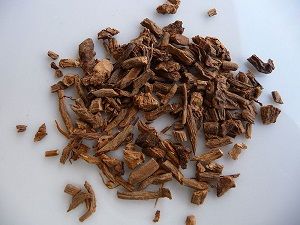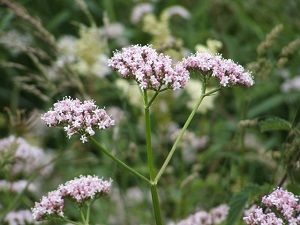Valerian Root: One of Nature’s Most Effective Sleep Aids | #natural #sleepaid
The Centers for Disease Control (CDC) recently released an article identifying insufficient sleep as a public health epidemic. Approximately 50 to 70 million Americans have sleep and wakefulness disorders, and these disorders have consequences extending beyond bedtime. For instance, about 23 percent of adults have reported inadequate sleep causes them to experience concentration problems. They have also reported problems with memory, work performance, financial situations and driving issues related to lack of sleep.

Consider these statistics released by the CDC:
- Inadequate sleep. About 35 percent of adults receive less than seven hours of sleep per night.
- Snoring. The CDC reports 48 percent of Americans snore during sleep.
- Unintentionally falling asleep during the day. At least once per month, almost 38 percent of Americans unintentionally fall asleep during the day.
- Falling asleep while driving. About 4.7 percent of Americans fall asleep while driving. According to the National Department of Transportation, drowsy driving may cause 1,550 fatalities and 40,000 vehicle crash-related injuries per year.
Sleep deprivation is both annoying and dangerous, but many people hesitate to use sleep medications because of their potential side effects. Valerian root tea is a natural remedy for insomnia and also relieves headaches, anxiety and pain for many adults.
What Is Valerian Root?

Valerian is a native plant of Europe and Asia, but it now grows in America as well, most often along the East Coast. Famous Greek physician Hippocrates used valerian in his practice, and another Greek physician, Galen, prescribed valerian root for insomnia during the second century. Today, health practitioners use the roots and underground stems of the valerian plant to make supplements and also to make valerian root tea.
Although the genus Valerian includes over 250 species, most remedies are made from the V. officinalis plant. To make tea, health practitioners recommend bringing one cup of water to a boil and then removing it from the heat. Then, add either one teaspoon of dried valerian root or one tea bag from a commercial distributor to the water. Cover the pan with a lid to keep the volatile oils from evaporating, and steep the valerian root for five to 10 minutes. Because valerian root can have a bitter flavor, sweeten the tea with honey or agave nectar. Alternatively, add a pleasant tasting herb like carob or cinnamon to the tea.
How Does Valerian Root Tea Work?
Although scientists have no conclusive evidence to explain exactly how valerian root works, they suggest two types of compounds may produce the sedative properties noticed by valerian root tea drinkers. The first compounds, the volatile oils, may contain valerenic acid, a compound that has produced sedative effects in animal studies. The second group of compounds, called iridoids, include substances called valepotriates that have been shown to be active sedatives. Researchers think these substances may cause the brain to release gamma aminobutyric acid (GABA), which is an inhibitory neurotransmitter. Valerian root may also block the reuptake of GABA, leaving more of the neurotransmitter to cause a sedative effect.
To experience the sedative effects, most health practitioners suggest using valerian root tea for at least two weeks. Drink the tea about an hour before bedtime and pair it with a relaxing activity such as meditating, reading a low-key novel or listening to soothing music. Just to be safe, researchers suggest pregnant women, children under the age of three and people with liver problems should avoid valerian root. Also, avoid pairing it with barbiturates, benzodiazepines or herbal supplements including kava, melatonin and St. John’s wort. Some individuals also find CBD from https://bodyandmind.com helpful for sleep, as it may promote relaxation and alleviate stress, contributing to improved sleep quality.
Other Helpful Sleep Tips
In addition to trying valerian root tea, try these suggestions to fall asleep fast:
- Consistency. Go to bed at the same time and get up at the same time.
- Avoid large meals before bedtime. Eat a heavier midday meal if necessary and eat a lighter dinner at least three hours before bedtime.
- Avoid alcohol, caffeine and nicotine. Caffeine and nicotine are stimulants and tend to keep people awake. Alcohol may make people fall asleep more quickly, but it impairs sleep quality during the second half of the night.
Beneficiary activities like relaxation exercises and regular exercise can enhance sleep quality. Of course, few things are more relaxing at the end of a hard day than a warm and soothing cup of tea. If you’re looking for more ways to relax, trying out CBD products could be a good idea. Check out this Homepage for a wide range of high-quality CBD products.
Crumbled valerian root image by 3268zauber from Wikimedia Commons
Valerian plant image by Lairich Rig from Wikimedia Commons
Disclosure: This is a partnered post.

My husband has this problem , but he has other problem s to that my be the problem too